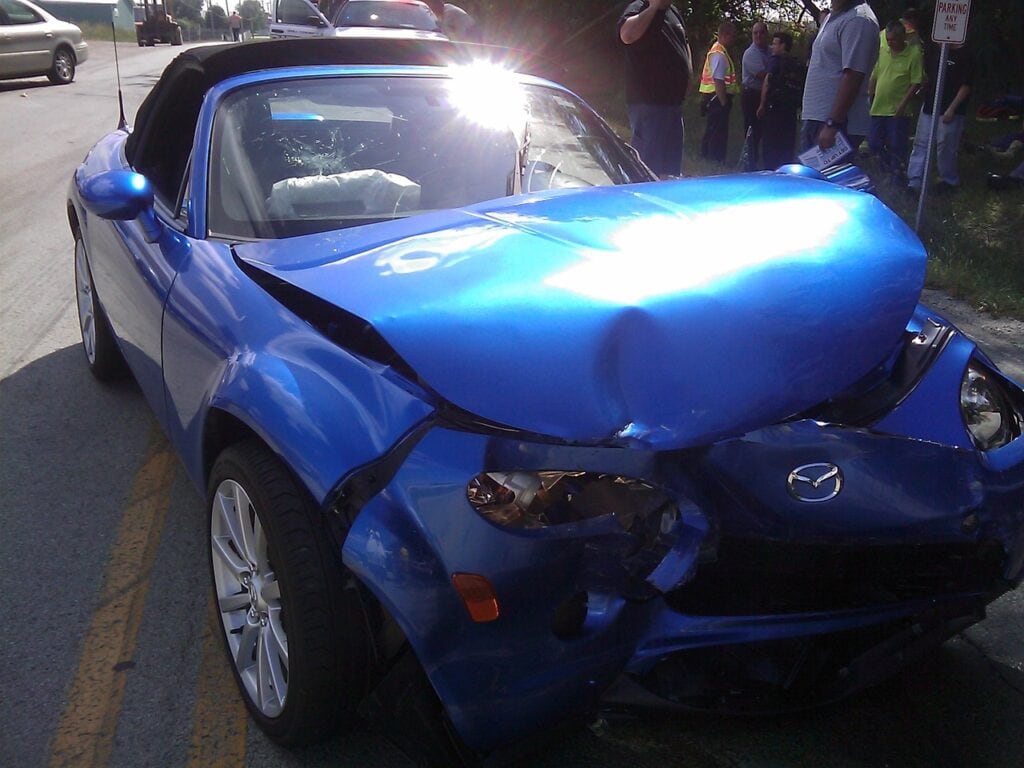A rear-end collision can happen in an instant but leave you suffering from serious injuries, medical expenses, lost wages, and pain and suffering. At The Joseph Dedvukaj Firm, P.C., we have over 30 years of experience fighting for car accident victims, ensuring they receive the maximum compensation they deserve. Our firm has secured millions in settlements and verdicts for Michigan families. Let us handle the legal battle while you focus on healing—you pay nothing unless we win.
Rear-end crashes are among the most common types of motor vehicle accidents in Michigan. These collisions often result in whiplash, back injuries, and head trauma, even at low speeds. If you or a loved one were injured in a rear-end accident, you need a skilled attorney who will fight for your rights against insurance companies that try to minimize your claim.
If you were injured in a rear-end collision, contact us today for a free consultation.
Causes of Rear-End Collisions
Rear-end accidents typically happen when one driver fails to stop in time and crashes into the back of another vehicle. These crashes can be caused by several factors, including:
- Distracted Driving – Texting, talking on the phone, eating, or using in-car entertainment can cause drivers to take their eyes off the road.
- Following Too Closely (Tailgating) – Drivers who do not maintain a safe following distance increase the risk of a crash.
- Speeding – Driving too fast reduces the time needed to react to slowing traffic.
- Sudden Stops – Unexpected stops can lead to rear-end collisions, especially in heavy traffic.
- Weather Conditions – Rain, snow, and ice can make stopping distances longer, leading to accidents.
- Brake Failure or Mechanical Issues – Faulty brakes or malfunctioning safety features can contribute to rear-end crashes.
Even at low speeds, rear-end collisions can cause serious injuries that require extensive medical care and rehabilitation.

Injuries Common in Rear-End Accidents
Rear-end collisions may seem minor at first, but they can cause significant injuries, such as:
- Whiplash and Neck Injuries – The sudden jolt of a rear-end crash can strain neck muscles and ligaments.
- Back and Spinal Cord Injuries – Herniated discs, fractured vertebrae, and nerve damage can result from the impact.
- Head and Brain Injuries – Concussions and traumatic brain injuries (TBI) can occur, even if airbags deploy.
- Broken Bones – Arms, wrists, ribs, and facial bones can be fractured in severe rear-end crashes.
- Soft Tissue Injuries – Muscle strains, ligament damage, and internal injuries can cause long-term pain.
If you are experiencing symptoms such as neck pain, headaches, dizziness, or numbness after a rear-end accident, seek medical attention immediately. Then, call our office to discuss your legal options.
Who Is Liable in a Rear-End Collision?
In most cases, the driver who rear-ends another vehicle is at fault. However, exceptions exist, such as when:
- The lead vehicle suddenly reverses.
- The brake lights of the lead vehicle were not functioning.
- A multi-vehicle pile-up occurs, causing a chain reaction.
- The rear driver was hit from behind and pushed into another vehicle.
Determining liability and fault is crucial because Michigan follows a comparative negligence rule. If you are found more than 50% at fault, you may be barred from recovering certain damages. Our attorneys will thoroughly investigate your accident, gather evidence, and fight back against insurance companies that attempt to unfairly shift blame.
Compensation Available for Rear-End Collision Victims
If you were injured in a rear-end crash due to another driver’s negligence, you may be entitled to compensation for:
- Medical Expenses – Emergency care, surgeries, rehabilitation, and ongoing treatments.
- Lost Wages – Income lost due to inability to work after the accident.
- Pain and Suffering – Physical pain, emotional distress, and loss of enjoyment of life.
- Property Damage – Repair or replacement of your vehicle.
- Future Medical Care – Long-term rehabilitation, therapy, and home modifications for serious injuries.
Insurance companies will often try to lowball your settlement or deny your claim altogether. Our skilled Michigan rear-end collision lawyers will negotiate aggressively on your behalf to ensure you receive full and fair compensation.
Michigan Rear-End Collision Statute of Limitations
In Michigan, you have three years from the date of the accident to file a lawsuit for personal injury claims. However, if you are seeking Personal Injury Protection (PIP) benefits under Michigan’s no-fault insurance system, you must file a claim within one year of the crash. Waiting too long could mean losing your right to recover compensation.
Don’t delay—call us today to get started on your case.
How Our Michigan Rear-End Collision Attorneys Can Help
At The Joseph Dedvukaj Firm, P.C., we understand the challenges you face after an accident. Our legal team will handle every aspect of your case, including:
- Investigating the accident to determine liability.
- Collecting evidence, such as police reports, surveillance footage, and medical records.
- Negotiating with insurance companies to get you the maximum settlement.
- Filing a lawsuit if necessary and representing you in court.
- Fighting for the full compensation you deserve.
With over three decades of experience handling Michigan car accident claims, we know how to win cases. We work on a contingency fee basis, meaning you pay nothing unless we win your case.
Injured in a Rear-End Collision? Contact Us Today.
If you or a loved one suffered injuries in a rear-end accident in Michigan, don’t wait to seek legal help. The Joseph Dedvukaj Firm, P.C., is ready to fight for you and ensure you receive the compensation you deserve.
Contact us for a free, no-obligation consultation.
Call us now at 1-866-HIRE-JOE.


